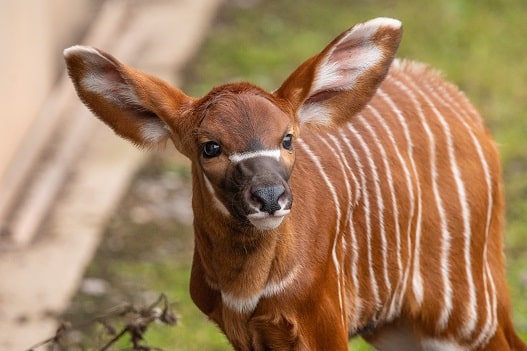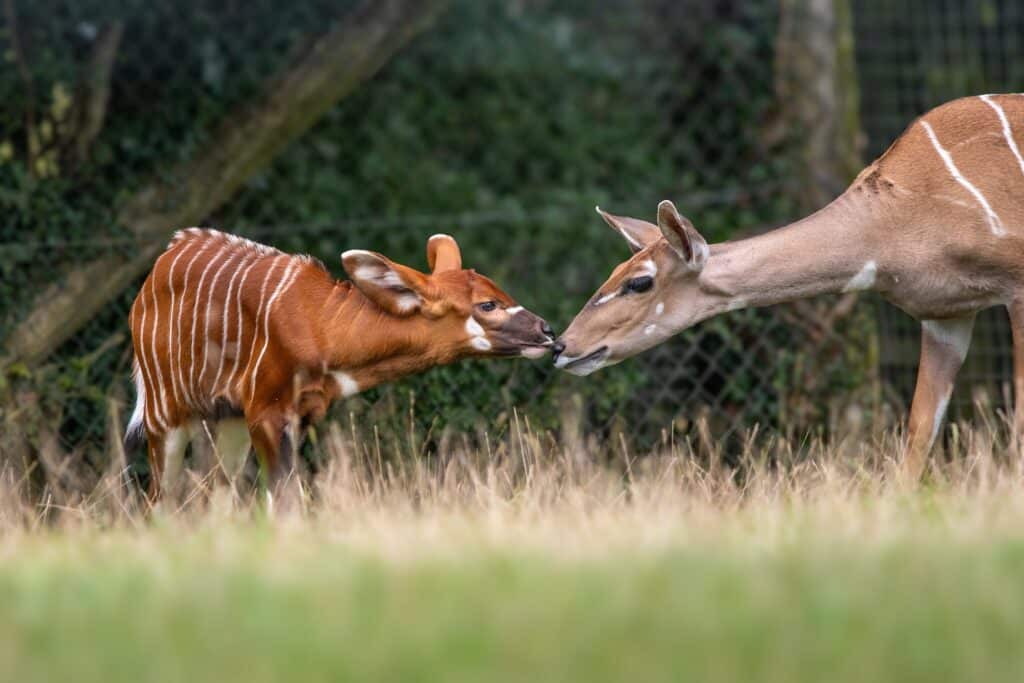The pitter-patter of tiny hooves
September 13, 2024
September 13, 2024

We are thrilled to announce an incredibly rare new arrival in the form of a Critically Endangered mountain bongo calf.
Born on September 4, the male baby bongo has already impressed keepers with his feistiness.
There are thought to be only 100 mountain bongos left in the wild so the new addition to Marwell’s herd is a real cause for celebration.
Mountain bongos are a large species of antelope found in four distinct areas of Kenya where they live in forests and highlands.
Mother, Jumapili (meaning Sunday in Swahili), arrived at Marwell Zoo with her previous calf, Kaska, last year.
The species is listed on the International Union for the Conservation of Nature’s (IUCN) Red List as Critically Endangered and the new arrival is part of the international breeding programme to ensure the future of the species, which continues to decline in the wild.
Rhiannon Wolff, animal keeper, hoofstock, said: “The team is excited to announce the birth of a male mountain bongo to mum Jumapili.
“The calf has been very confident, energetic and adventurous right from the start. He appears quite feisty and has been confidently exploring more and more of his habitat every day – bravely greeting the lesser kudu this week.

“Mountain bongo are the largest and heaviest forest antelope species, and they can be found in four isolated populations in patches of forest in Kenya.
“Their conservation status is currently Critically Endangered, with only around 100 animals left in the wild, with their numbers declining.
“This calf is a very important part of the breeding programme and European Ex-situ Programme (EEP) (the species studbook) which endeavours to ensure the survival of this species.”
When they are young, all bongo calves have a chestnut coat with thin white stripes. They have large floppy ears that they grow into as they get older. In the wild calves are often left hidden in vegetation after birth to conceal them from predators such as leopards.
The calf is currently spending most of his time in his bed stall with Jumapili checking in and feeding him throughout the day. As he gets older, he will start to venture out more and his chestnut-red colouring will darken to a similar shade as his father, Ituri.
Leopards are the main predators of bongos and when under threat they will run into the forest with their horns held against the back of their necks, so they don’t get snagged on the undergrowth. The species faces a number of threats, including hunting with dogs and loss of habitat as well as the risk of diseases from domestic cattle.